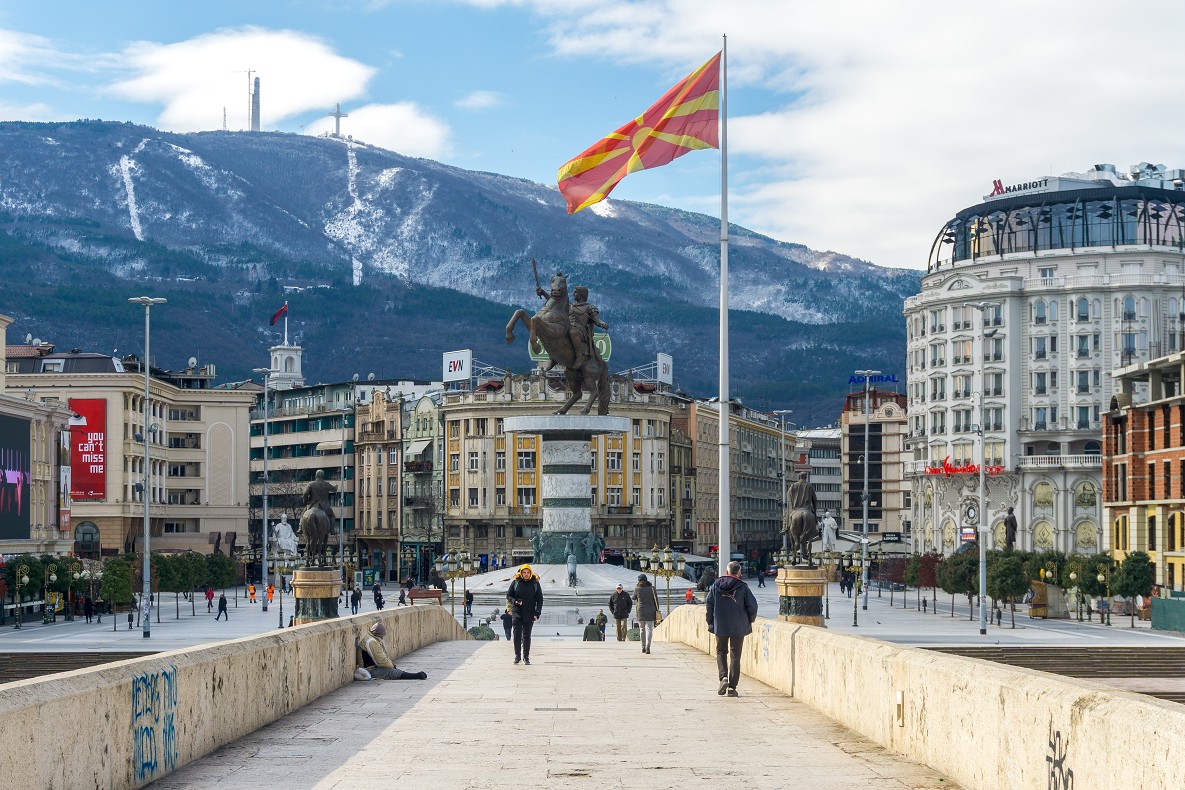In North Macedonia, despite the steady growth of the gambling industry, its expansion is overshadowed by an unsettling increase in violence related to casinos and slot halls, including stabbings, robberies, and murders. The surge in criminal activities has fueled a grassroots anti-gambling movement. Despite calls for urgent reforms, progress has been slow.
However, the new government seems determined to push through the necessary reforms and may be reforming an industry mainly controlled by Austrian companies such as Novomatic and Casinos Austria.
"Kumanovo Casino security repels knife attacker." "Man stabbed in Radovish Casino brawl." "Police arrest 'cocaine dealer' outside Tetovo Casino." "Gang attacks man in Mogila village casino." "Robbers strike Struga Casino." These headlines were reported by journalist David Ilieski within a month, raising concerns among many worried North Macedonian citizens.
Grassroots Movements and Public Discontent
The government's slow response to these incidents, lacking a unified national strategy, has exacerbated public discontent. The grassroots movement has intensified calls for stricter gambling regulations, particularly advocating for the prohibition of gambling venues near residential areas. They also believe that the current laws are poorly enforced, leading to rampant money laundering and tax evasion. Many are disillusioned with the so-called political establishment's deep ties with the gambling industry, which they believe undermines meaningful reform efforts.
Xhemal Abdiu, a youth worker from Mala Recica, has become a symbol of the anti-gambling movement for opposing a casino near his home. His efforts led to the cancellation of the local project, but broader national reforms remain stalled. Although neighboring countries like Albania and Kosovo have enacted stricter gambling laws, progress in North Macedonia has been much slower. The anti-gambling movement gained nationwide support in 2016, backed by the Albanian minority, but has so far struggled to secure significant regulatory changes.
However, after mobilizing broad public participation, the movement's demands were incorporated into a legislative bill at the end of 2023: the proposed amendments to the "Games of Chance Law" gambling regulatory framework.
Controversial Legal Bill
The legal bill introduces several controversial amendments aimed at strengthening regulation of the gambling industry:
– Gambling venues, including shops and slot clubs, must be at least 500 meters away from elementary and secondary schools.
- The licensing fee for operators will increase, with betting shop fees expected to rise from 105,000 euros to 200,000 euros.
– A special tax of 20% will be levied on the net monthly income of casinos, betting shops, and slot clubs, along with new rules to curb financial data manipulation.
– Online gaming operators will face higher fees, including a 6% lottery payout fee, a 20% special games payout fee, and a 3% system management fee.
– Operators must implement a "Regulatory Information System" linked to the Public Revenue Office to ensure proper oversight.
Industry Opposition to Amendments
Journalist David Ilieski explains that prohibiting gambling venues within 500 meters of schools is a "core demand" of the anti-gambling movement. He adds, "Given the high concentration of schools and casinos in urban areas, this ban could theoretically force hundreds of casinos to close or relocate to outlying areas." This is also the most opposed proposal by the industry.
The Gambling Industry Association urges former chairman Stiv Pendarovski not to sign the bill, warning that the restriction could lead to the closure of up to 98% of gambling venues and cause massive unemployment. They claim that the potential closure of gambling venues would force its 10,000 employees and their families to seek work abroad.
Novomatic's Macedonian office describes the 500-meter ban proposal as unfeasible and "pure populism." Some critics even believe that the law might be intended to favor digital platforms over physical operators.
Former Austrian ambassador Georg Woutsas, representing the interests of Novomatic and Austrian casinos, publicly criticizes North Macedonia's gambling amendment bill, warning that these amendments could damage the country's reputation and cause significant losses. He also defends Austrian operators, claiming they adhere to strict player protection standards.
The gambling industry contributes significantly to GDP, with gambling tax revenue increasing by 45% from 2018 to 2022.
Since its establishment in 2011, North Macedonia's gambling market has been regulated by the Ministry of Finance, including physical casinos, sports betting, slot halls, and online gambling, mainly operated by Austrian companies.
On the other hand, online gambling remains primarily controlled by state-owned entities, limiting private sector participation.
Last-Minute Rejection
Despite industry opposition, the amendments were passed by parliament with a majority vote in February 2024 and submitted to the president for approval, which is usually a formality. However, the president refused to sign the bill citing insufficient debate and returned it to parliament. At a subsequent hearing on March 14, the bill failed to secure enough votes to pass.
Regulatory Update Progress
With the new government led by President Gordana Siljanovska-Davkova and her nationalist allies (VMRO-DPMNE) taking office last May, there is renewed focus on reforming the "Gambling Law." Siljanovska-Davkova, North Macedonia's first female president since its independence in 1991, has pledged to address corruption and economic challenges to align the country with EU standards. The proposed amendments to the "Gambling Law" were approved by the assembly in February 2024 but have not yet been signed into law by former President Pendarovski. The new government will now reconsider the amendments.
The nationalist government will focus on reforms, emphasizing regulation of physical venues, licensing fees, and online gambling regulation. Despite facing resistance, the gambling industry remains a significant contributor to GDP, and new regulations may introduce stricter licensing rules.
Due to internal political conflicts, outdated regulations, and weak oversight, the future of the gambling industry is uncertain. However, if North Macedonia can resolve internal differences and modernize its regulatory framework, the gambling industry could become a more stable and progressive sector in the coming years.










